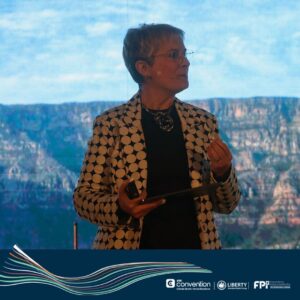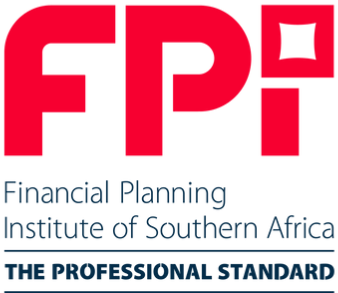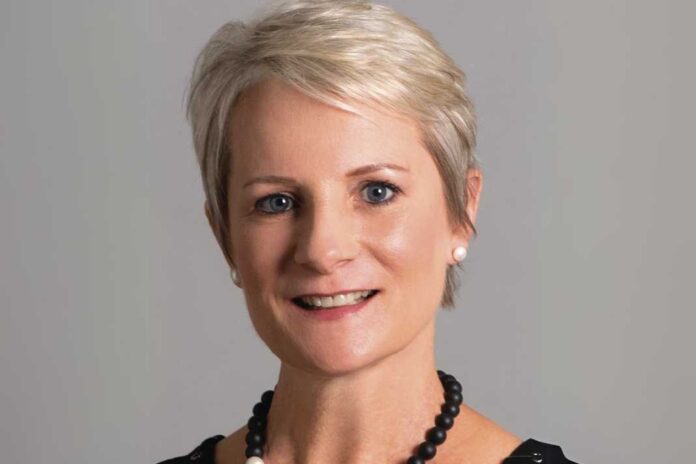Please tell us about your journey over the years as a woman in the financial planning profession.
While I originally started at a very young age, by chance, in the financial planning profession, it was at the age of 28 that I realised the vital need for independence in my own financial planning. Sadly, my husband passed away in an aircraft accident, leaving me on my own at 28 years old, pregnant with our first child. I would joke with my friends and tell them that I was the only pregnant pensioner they knew! It was no laughing matter: I was not financially independent, and it was a real struggle for me to know how I would manage financially as a single mother in the years to come.
With this incredibly personal experience, I was relentlessly motivated to ensure that other women would not find themselves in a similar position. At that young age, I always thought “it would never happen to me”, but now I was a statistic, and I was adamant that my role in the financial planning profession was to help women create their own financial independence. And that is what I do.
Please share your career trajectory to this point.
I’ve had the privilege of “growing up” in the financial planning profession, and 36 years later, I can truly say it has been a good experience. After completing my initial post-school studies, I worked for many years in asset management. Once I had completed the CFP® certification, I started working at Core Wealth Advisory Services, where I now work as a senior financial planner, specialising in investments.
Blue Chip congratulates you on your recent appointment as the 2025 Financial Planning Standards Board (FPSB) Council Chairperson. How do you feel about this achievement?
It is a real honour for me to play such a significant role in financial planning from a worldwide perspective. I am excited and look forward to working hard to ensure excellence in the standard of financial planning in so many territories.

Financial planning, or the lack thereof, plays an enormous and very crucial role in shaping the lives of individuals.
How has your role as FPI Chairperson impacted your career?
Working with a board of directors who are so competent and committed to improving the standard of financial planning in Southern Africa has been an eye opener to me. I am constantly inspired by this team, as well as the Exco at the FPI. They have allowed me to exponentially grow my knowledge of strategic planning and the governance of an organisation. A vast amount of my professional growth is thanks to the FPI.
What are your objectives for the FPI?
My objectives align with the strategy of the FPI: we lead the financial planning and advisory profession in Southern Africa; creating awareness of the CFP® certification and other financial advice-related designations. We ensure that financial planning is recognised as a profession; and we continue to establish and maintain the standard of excellence for financial planning within Southern Africa.
What does success mean to you?
Being a relator is one of my top strengths and so I value strong, meaningful relationships with friends and family. It’s about creating those connections and experiencing love, trust and mutual respect along the way. My financial planning “style” attempts to reflect this.
For me, success is about reaching specific milestones, whether they are career-related or personal. I believe that by following my passions, I can achieve anything. And for this reason, I “play” hard and I work hard to achieve my goals. This has allowed me happiness, contentment, personal growth and balance in life.
Please discuss the powerful impact that financial planning has on individuals in South Africa.
Financial planning, or the lack thereof, plays an enormous and very crucial role in shaping the lives of individuals. Good financial planning can ensure a sense of security, control and empowerment. The impact it has can be far-reaching, in both the immediate well-being, as well as the long-term sustainability of an individual.
Sound financial planning can help us to work towards achieving incredible long-term goals such as purchasing our homes, supporting our children through tertiary education, travelling on a regular basis, ensuring that we have no debt and, finally, being able to retire with the same standard of living to which we have become accustomed.
It is a well-known fact that financial pressure is one of the biggest stresses many people face. This draining anxiety can be avoided by good budgeting, saving and investing and so creating peace of mind.
I’m a firm believer in the very powerful impact that financial independence has, especially on women. Having independence allows us to make choices which can enable us to follow our passions in life, and thereby achieve personal satisfaction.

Please discuss the importance of networking and building relationships in the financial planning profession.
Financial planning is a people-centred profession. Many people think that as a financial planner I should be good with numbers, but on the contrary, a financial planner needs to be good with people and understanding the psychology of people. We have software solutions for the numbers. Technical expertise is important, but the ability to connect with our clients, colleagues and fellow professionals is vital. We are a long way from being replaced by AI!
We all know that the financial planning profession can be incredibly demanding, where we work long hours and there are high expectations set for us. By building relationships with other like-minded professionals, I am encouraged, supported and motivated. When we attend events or conventions, I enjoy connecting with compatible professionals who share their experiences with me. It inspires me to continue contributing to our profession. I am a firm believer in Ubuntu: “I am because of others”. My identity and my successes have not been solely my individual achievements but rather shaped by the people and relationships I have within the financial planning profession.
You currently mentor young financial planners. What is your motivation for doing so?
There is a selfish, human motivation: to see them succeed allows me to share in their joy. The financial planning profession is often regarded as the most noble profession, following on from the medical profession. It is for this reason that I am passionate about helping younger financial planners to work with their clients to create a better quality of life for them.
I am deeply grateful for the many mentors that I have had over the past 36 years, and it feels good to “pay it forward”.
Mentoring is leadership and it requires patience, good communication skills and the ability to guide others without controlling what they do. I enjoy working with younger financial planners to see their strengths and grow those strengths. I hope to help them foster inner motivation and allow them to build a strong client base. I want to see them achieve their goals and ultimately be well rewarded financially.
Good financial planning can ensure a sense of security, control and empowerment.
Please share your top tips on how financial planners can elevate their practices.
As financial planners, we need to work hard to ensure that we are working with our strengths and that should mean working with our clients not working on our businesses. However, to ensure that this can be done, we need to implement strategies that facilitate this. I would recommend that you consider the following in your practices:
- Have an operations manager in the practice who is in a fairly senior role and manages processes such as administration, compliance and marketing.
- Have specialists within your business. You cannot be a “jack of all trades” as this will certainly make you a “master of none”. For this reason, if your business is big enough, bring in separate specialists to cover areas such as investments, healthcare, risk, group benefits, tax and legal. This will allow you to have a comprehensive financial planning offering to your clients, ensuring your ability to deal with all aspects of your clients’ finances.
Please share a message with women wishing to develop themselves personally and professionally.
People will rather follow a leader who is always real than one who is always right. Be authentic, relational, genuine, transparent, honest and real. That way, people will trust you, follow you and love you. What more do you need?










